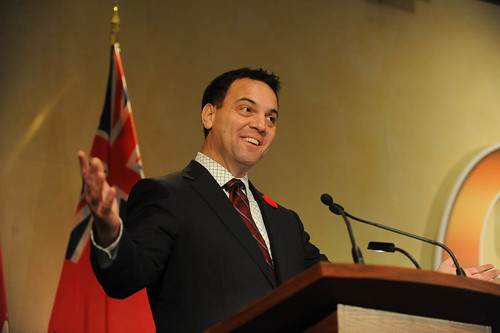Kathleen Wynne says budget defeat would force 'unnecessary' election
When speaking with reporters in Toronto on Wednesday morning, the premier said she believed the government’s budget would be "very supportable" by both opposition parties.
But she also said that if they decide to vote against it and an "unnecessary" trip to polls is triggered, the Liberals are prepared to take on their opponents during a campaign.
“We’re ready for that and we’ll be campaigning in every seat across this province,” Wynne said.Veteran strategist Don Guy declines to run another Ontario Liberal campaign
Although Mr. Guy will continue to advise the Liberals, his decision will likely place more responsibility in the hands of Tom Allison, who ran Ms. Wynne’s leadership campaign this past winter and will step into that job in a general election. Ms. Wynne’s principal secretary, Andrew Bevan, is also expected to play a senior strategic role, as is Liberal backroom veteran David Herle.Meanwhile, on the Opposition front:
Ontario PCs ‘thrilled’ with Doug Ford’s vow to run in next election, challenge to Premier Kathleen Wynne
“I’m calling her out — call an election, Kathleen Wynne, in May and I will run — I will guarantee it and we will defeat you and we will make sure the fiscal ship of this province is going in the right direction,” Ford declared on the The John Oakley Morning Show Wednesday. “If she calls it in May I’m going because this province right now is in deep trouble.”Tim Hudak enlists U.S. help to prepare for possible spring election
To help him improve, Hudak is using the services of Greener and Hook, a high-profile Alexandria, Va., political consultancy firm that does work for Republican clients such as House Majority Leader John Boehner and one-time presidential hopeful Michele Bachmann.The increased amount of spending on the part of so-called "third-party" groups (a confusing term if ever there was one) during elections has not gone unnoticed.
Third-party spending tripled in last Ontario election
Essensa notes that only one third party raised and spent more than $1 million on political ads in 2007. But in 2011, three third-party groups exceeded this threshold, with the ETFO representing the largest single spender at nearly $2.7 million.Ontario should limit ‘third party’ election spending: Editorial
A gaping loophole in Ontario’s election finance rules allows so-called “third party” interest groups to dodge campaign spending limits. They’re increasingly using this lack of oversight to outspend bona fide political parties and sway the results of a vote. And that isn’t healthy for democracy.








